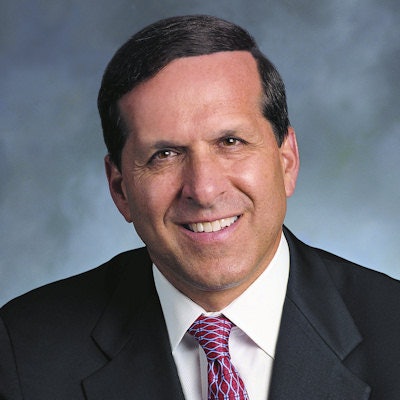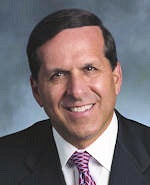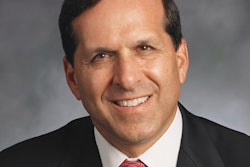
Dr. Roger P. Levin brings you the most thought-provoking topics from the Dental Business Study Clubs, an organization focused on the business of successful dentistry. Each month, Dr. Levin will explore an aspect of the business of dentistry in detail.
Is your practice in the same place that it was last year or, even worse, the same place it's been for the last three to five years? We've noticed among our client base that an increasing number of practices have plateaued or been stuck at a certain revenue.
The most common number we see for solo general dentists is approximately $750,000, but we are also seeing it lower ($650,000) or higher ($900,000 to $1,000,000). Admittedly, in today's times of uncertainty, that level of revenue doesn't seem too shabby. However, practices that have been stuck in these plateaus for approximately one to two years are in danger of ultimately heading toward decline.
5 ways to get unstuck
 Roger P. Levin, DDS, is the executive founder of the Dental Business Study Clubs.
Roger P. Levin, DDS, is the executive founder of the Dental Business Study Clubs.So how do you get unstuck? The good news is that there are approximately 40 key actions that will have a significant impact on increasing practice production and breaking through a plateau. The bad news is that there are approximately 40 key actions that will have a significant impact on increasing practice production and breaking through a plateau.
So while there's a lot that you can do to give your practice a boost, it can be overwhelming to choose how to get started. Here are five action items to help you begin.
1. Raise your fees
This is an obvious but scary proposition that many practices are understandably afraid to enact. Raising fees won't help if you lose patients because they think your fees are too high. And what about your insured patients?
These are valid concerns; however, your hesitancy to raise fees can cause you to fall behind the pace of inflation. While there's not much you can do about raising fees for insured patients, many patients are fee-for-service only. And raising fees 3% to 5%, especially on nonhygiene services will barely be noticed if your dentistry and customer service remain top-notch.
We also often recommend increasing hygiene fees by 2% to 3% increments. Once again, this increase will probably go unnoticed if your service is excellent.
2. Increase product sales
Most practices don't do a very good job of selling home care products to patients. We recommend that the hygienist creates an "at-home care prescription" for every patient. This should be reviewed with the patient and include explanations as to why the specific home care activities are beneficial and which products can be used.
The hygienist can then offer to put together a product bag for the patient. Patients can pay for their products at the time of service and purchase product refills from the office on future visits. Make it normal. Make it easy. Make it a routine.
3. Dental insurance
There are many ways to improve production with dental insurance that are within the contractual obligations of the practice. Practices should regularly review patient records and ensure that every patient with remaining benefits is advised that they should apply those benefits toward treatment by year's end or they will lose them.
We have helped practices increase production by $60,000 to $80,000 using this technique alone. But it cannot simply be a one-time contact. Levin Group recommends a nine-step, follow-up process that can literally double the number of patients who make appointments to complete treatment.
4. Schedule 98% of your patients at all times
Most practices have no idea how many of their patients are unscheduled. When we perform a new-client analysis, we typically find that the number of unscheduled patients at any given time ranges around 15% to 17%.
“Most practices have no idea how many of their patients are unscheduled.”
We teach clients that unscheduled patients are potentially lost patients, and when they are lost, you may lose an entire family. The solution? Scheduling 98% of your patients will immediately increase practice production.
The key is to implement what we call a one-day rule. This states that any patient who is overdue for an appointment by one day will be called that day. If you don't reach them, there is a nine-week follow-up process that's highly effective in contacting patients and motivating them to make appointments.
Don't be concerned about overwhelming or harassing a patient. There's excellent scripting and email writing that is extremely positive and supportive. One of the most important obligations the front desk staff has is to fill the schedule and keep patients in the practice long-term.
5. Collect your money
Practices should be collecting 99% of all money that is owed. We recommend the implementation of a multistep method for collection:
- Provide a discount for paying upfront.
- Accept all convenient credit cards.
- Collect money in multiple installments before the last appointment.
- Remind patients about their balance at each appointment.
- Offer patient financing.
It's critical that practices offer all financial options so patients feel they have choices in how they're going to afford treatment. Implementing these methods with the right scripting will create a powerful system that will allow for a 99% annual collection rate.
Practice differences
Getting unstuck is a very important aspect for almost every dental practice because most practices today will experience plateaus. The difference between the highly successful practice and others that aren't as successful is that highly successful practices break through their plateaus faster. Use these action items to help you make this happen.
Roger P. Levin, DDS, is the executive founder of the Dental Business Study Clubs.
The comments and observations expressed herein do not necessarily reflect the opinions of DrBicuspid.com, nor should they be construed as an endorsement or admonishment of any particular idea, vendor, or organization.



















